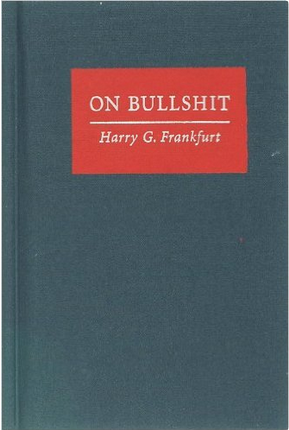
By Pepper Parr
August 5th, 2016
BURLINGTON, ON

Our political correspondent, Ray Rivers, is working up a pair of articles on the United States presidential race and comparing the situation down there with how our democracy is working in Canada.
When Rivers writes, as publisher he and I trade notes and thoughts on the direction his thinking is taking. My role is to support the writer. As I was reading through my own sources I came across a book On Bullshit, by Harry G. Frankfurt, a professor of philosophy emeritus at Princeton University and recognized as one of the world’s most influential moral philosophers
Here is what he has to say on that subject:
“One of the most salient features of our culture is that there is so much bullshit. Everyone knows this. Each of us contributes his share. But we tend to take the situation for granted. Most people are rather confident of their ability to recognize bullshit and to avoid being taken in by it. So the phenomenon has not aroused much deliberate concern. We have no clear understanding of what bullshit is, why there is so much of it, or what functions it serves. And we lack a conscientiously developed appreciation of what it means to us. In other words, as Harry Frankfurt writes, “we have no theory.”
Fareed Zakaria, writing in the Washington Post said: “Frankfurt, one of the world’s most influential moral philosophers, attempts to build such a theory here. With his characteristic combination of philosophical acuity, psychological insight, and wry humor, Frankfurt proceeds by exploring how bullshit and the related concept of humbug are distinct from lying. He argues that bullshitters misrepresent themselves to their audience not as liars do, that is, by deliberately making false claims about what is true. In fact, bullshit need not be untrue at all.
“Rather, bullshitters seek to convey a certain impression of themselves without being concerned about whether anything at all is true. They quietly change the rules governing their end of the conversation so that claims about truth and falsity are irrelevant. Frankfurt concludes that although bullshit can take many innocent forms, excessive indulgence in it can eventually undermine the practitioner’s capacity to tell the truth in a way that lying does not. Liars at least acknowledge that it matters what is true. By virtue of this, Frankfurt writes, bullshit is a greater enemy of the truth than lies are.”
This viewpoint and the role bullshit plays in our political lives at every level is not limited to the United States.
The book was a New York Times #1 Best Seller. No bullshit!